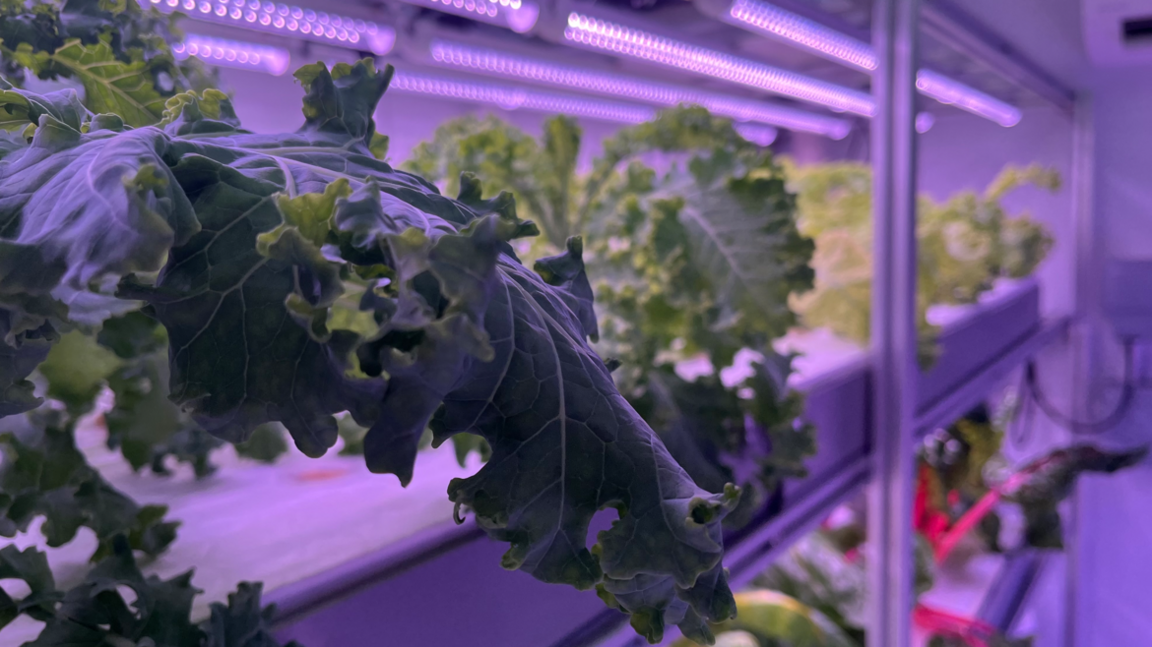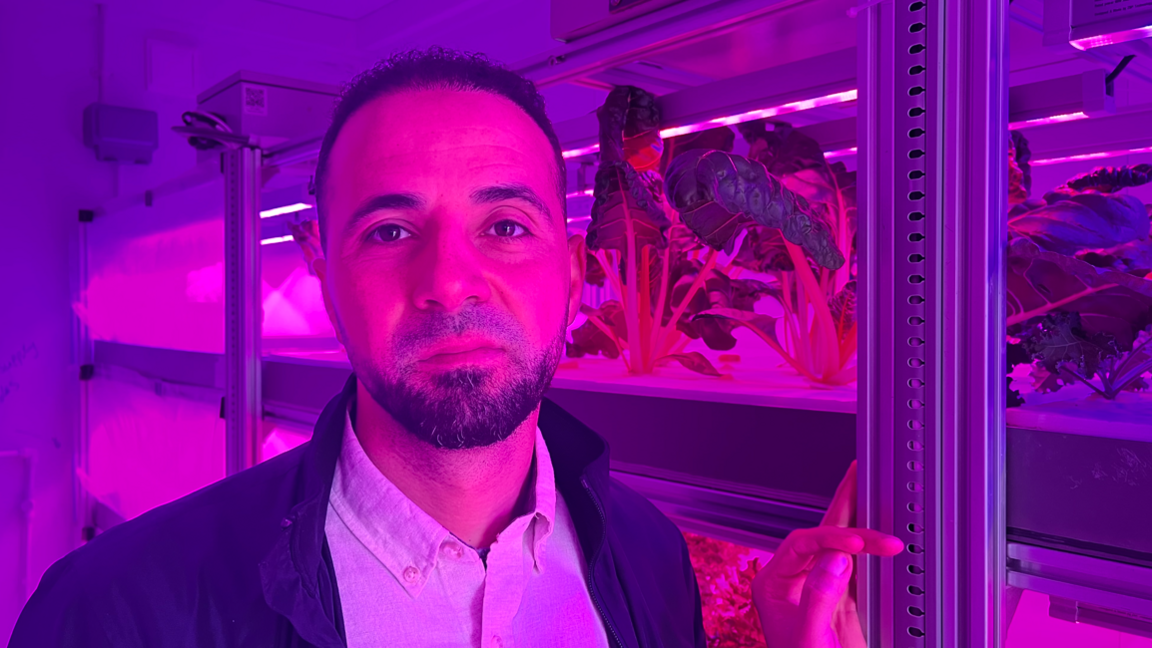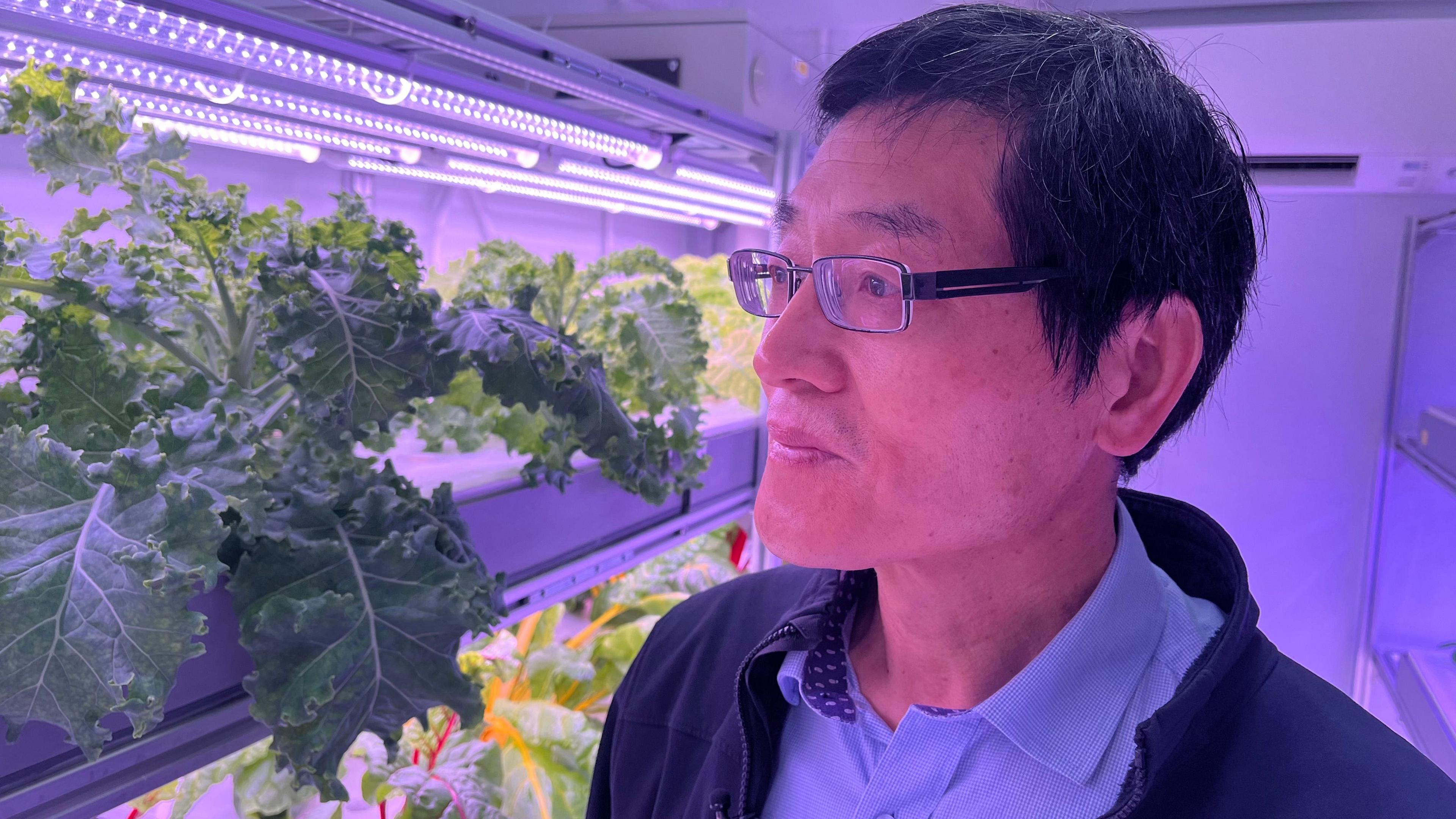Masters degree to teach 'smart' future of farming

"Smart agriculture" uses controlled environments to protect crops
- Published
A university says applications are coming in from across the world to study a new masters degree in "smart agriculture" this September.
Successful applicants at Nottingham Trent University will have the chance to tackle some of the biggest challenges facing farmers.
The course offers students the chance to explore how artificial intelligence (AI), vertical farming, automation, and precision agriculture could protect food supplies and reduce energy and fertiliser costs.
A growing population and climate change are expected to put pressure on food supplies in the UK and across the world.

Senior researcher Dr Gadelhag Mohmad says AI can help optimise food production
Masters students will join researchers based at the university's Brackenhurst campus.
Working in glasshouses and solar-powered shipping containers, they develop 'recipes' to produce food crops far faster than would be possible outdoors.
Senior researcher Dr Gadelhag Mohmad says his computer takes twice-daily readings to measure how his vegetables are responding to the nutrients and lighting mix in high-tech vertical farms.
Aubergines, Swiss chard, peppers, and various lettuce varieties all grow suspended over a hydroponic tank, with their roots immersed in nutrient-rich water rather than soil.
The data produced trains an AI system to suggest the optimum mixes to produce multiple crops without wasting expensive energy or fertiliser.
"We only give the exact amounts that the plants need," says Dr Mohmad.
"It means we can grow three trays of plants using the same amounts that we previously used for just one tray."

Prof Chungui Lu says supermarkets are planning to grow crops in food distribution centres
It's not just about salad crops. In China, growers are already successfully boosting rice production using these techniques.
In the UK, the university's results are attracting interest from the commercial food sector, which wants to install similar shipping containers in distribution centres.
The academic leading the research, Prof Chungui Lu, says supermarkets like crops grown without soil because they are pest-free, clean and fresh.
A controlled environment also means supermarkets know their orders are not in danger from a sudden storm or flooding and are virtually guaranteed to arrive on time.
The university says graduates who become expert in these methods will be in demand as vulnerable crops fail and the impact of climate change worsens.
"The course includes the skills you need to manage a vertical farm," says acting deputy dean, Julia Davies.
"We want to support students to recognise the value of short supply chains in sustainability and producing more nutritious food.
"The advances we've made means this feels like the right time for a course in smart agriculture", says Prof Lu. "This is the future of agriculture."
Follow BBC Nottingham on Facebook, external, on X, external, or on Instagram, external. Send your story ideas to eastmidsnews@bbc.co.uk, external or via WhatsApp, external on 0808 100 2210.